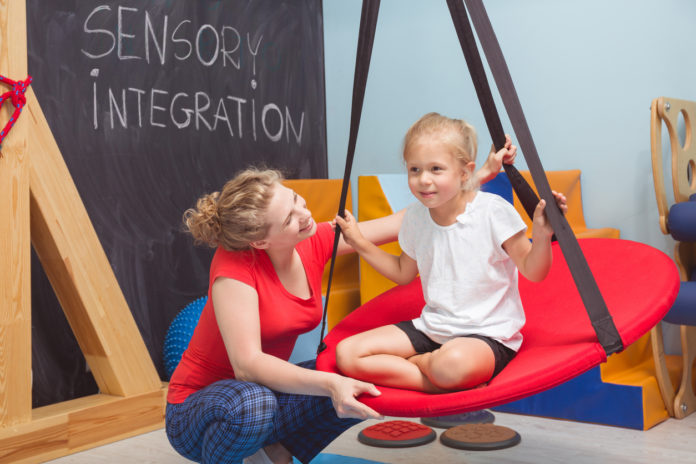Both adults and children learn best when their senses are stimulated. Remember the time when you entered a place that had a specific scent that helped you recall a very special memory? For example, a child entered a church and the smell of the church reminded him of all the days he spent at his grandmother’s house.
The fondest memories are attached to a specific smell, taste, or sound – like the scent of summer night campfires, or mom’s home-made pie, or nursery rhyme lyrics.
When a person’s senses encounter those familiar smells, tastes, and sounds all over again, the sensory nerves send messages to the brain to playback the memories attached to them. This is called sensory perception.
Early learning centers that incorporate sensory playtime do so to boost the absorption of information. After reading this article, you will understand how a child’s perceptual development contributes to his learning capability and why it is important to take it into consideration when engaging them in seemingly leisurely activities.
After all, “play” offers many more learning opportunities than many parents realize. Some nurseries even provide their own healthy food program and children are constantly encouraged to try out different food using olfactory senses.
Sensory Play and Child Development
Sensory play is a learning method that makes use of a child’s sensory perception for faster learning. These activities stimulate the five senses while promoting the love for exploration. During sensory play, a child is encouraged to create, explore, and investigate, thereby cultivating the natural sense of curiosity every student should have.
3 Benefits of Sensory Play
There are many ways in teaching children about how the world works, but tapping their sensory perception is the quickest and easiest way for them to learn. Since it comes naturally, stimulating the senses has been proven to be a better, more enjoyable alternative to the classroom lectures that tend to overwhelm just one or two senses.
Aside from that, there are three other major benefits that should be taken into account. Sensory play can:
- Improve Language Skills
While often overlooked, sensory play can help improve a child’s language and social skills by stimulating their imagination and encouraging keen observation.
Allowing a child to play with objects with varying tastes and textures can help he or she think of new ways to talk about the things he perceives. For example, water can be more than just “wet” – it can also be slippery, bubbly, rough (for waves), or even translucent and cold (ice). This is why many successful nurseries have created their own sensory rooms to give children maximum exposure to sensory experiences.
2. Hone Fine Motor Skills
Another important skill a child can develop through sensory play is their fine motor skills. Children have two types of motor skills that are developed as they grow: gross motor and fine motor.
The gross motor skills involve the coordination of large muscle groups that are used in activities like walking and running. On the other hand, fine motor skills entail the use of smaller muscles that are responsible for finer movements like pouring, lacing, and pinching.
Sensory play is more beneficial in honing fine motor skills as it includes movements like picking up small items and manipulating play clay. These activities can help him or her master crucial tasks and life skills like handwriting, buttoning a shirt, and using scissors, no matter how unrelated they may seem.
3. Relieve Stress and Promote Calmness
Another useful result of sensory play for young children is for stress-relief and calm.
Toddlers, especially those who like to play rough, jump around, and cannot be reined in easily, are calmer after bathing. This is because playing with bubbles is a type of sensory activity that helps regulate their discomfort, be it due to restlessness or boredom. Activities involving pouring liquids, splattering paint, and sifting through sand also have the same effect on kids as it allows them to focus on a specific action rather than feel agitated when sitting and listening to adults talk.
What the Senses Perceive, the Brain Remembers
Aside from choosing the best nurseries for early learning, parents can help their little ones acquire important life skills by engaging them in high-quality sensory play. While this type of activity can be expected in school, mommies and daddies should also make it a family bonding time to help their children reap the benefits mentioned in this article.
AUTHOR BIO
Lama Chivi is the CEO of Blossom by Babilou Education in the UAE. Having lived in Dubai for over 30 years, she combines the best of international practice and local expertise into this leading British Curriculum Nursery, delivering a top-tier and high-quality offering to the MENA region. The mission of Blossom by Babilou Education is to support children in building their own identity, self-discovery and awakening while respecting their own pace and their uniqueness.

















